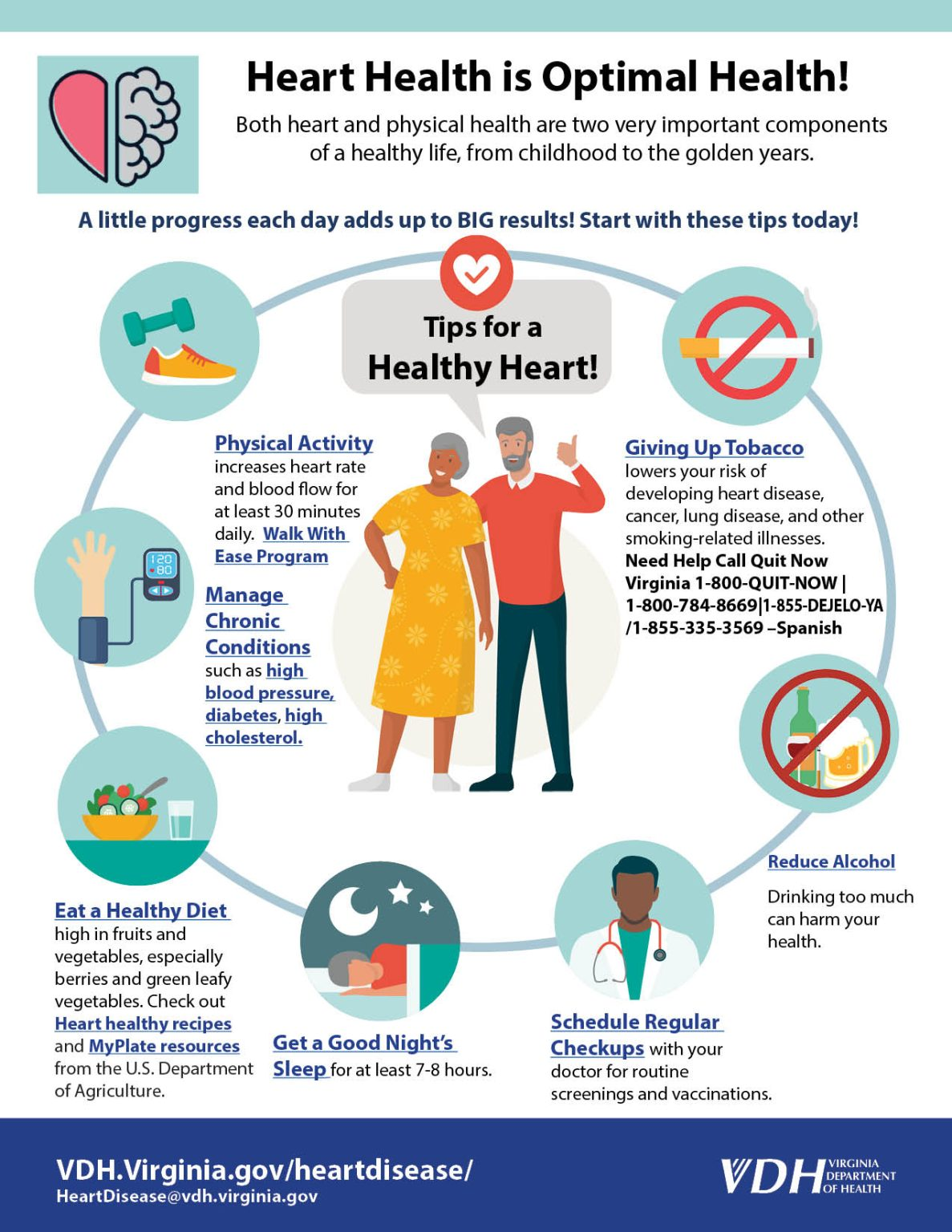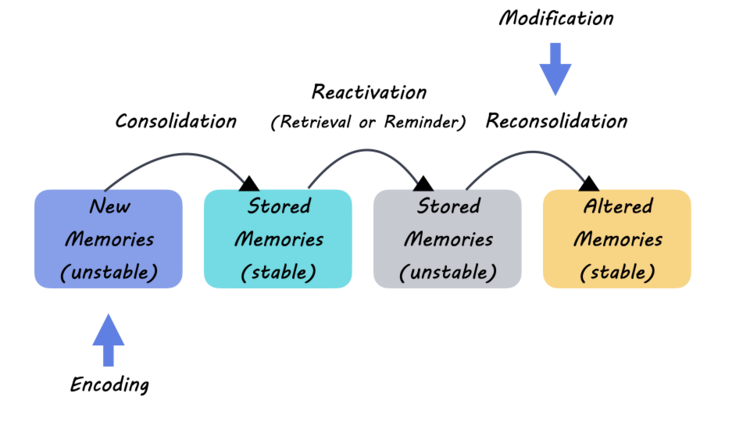Heart disease prevention is crucial as cardiovascular disease continues to be the leading cause of death in the United States. Many individuals underestimate the importance of taking proactive steps towards their cardiovascular health, often dismissing the potential risks associated with poor lifestyle choices. Cholesterol management, regular screenings, and understanding heart disease risk factors can empower patients to make informed decisions about their well-being. By prioritizing cardiovascular disease education, we can foster a culture that emphasizes early intervention rather than reactive treatment. As we delve deeper into the discussion surrounding heart health, it’s vital to recognize that the fight against heart disease begins with awareness and the determination to prevent heart disease before it starts.
Preventing heart disease involves understanding and addressing the complex interplay of factors that contribute to cardiovascular illnesses. This includes maintaining healthy cholesterol levels, managing blood pressure, and leading an active lifestyle to enhance overall cardiovascular wellness. Education about cardiovascular health and awareness of medical advancements play a significant role in equipping individuals with the tools they need for proactive health management. Recognizing the signs and risk factors associated with heart disease can drastically alter one’s health trajectory, with an emphasis on prevention rather than treatment becoming paramount. Ultimately, taking control of your heart’s health is a journey that begins with knowledge, commitment, and a resolute desire to avert future complications.
Understanding Heart Disease Risk Factors
Heart disease risk factors encompass a broad array of health issues and lifestyle habits that accumulate over time. Many individuals are unaware of how conditions such as high blood pressure, obesity, and high cholesterol contribute to the overall risk of developing cardiovascular diseases. It is crucial for patients to be proactive in understanding these factors, as early intervention can significantly reduce the risk of heart attacks and strokes. Regular health screenings can reveal insight into an individual’s cardiovascular health and help pinpoint specific areas for improvement.
Moreover, several lifestyle choices can either mitigate or exacerbate heart disease risk. For instance, a diet high in saturated fats, sugar, and sodium can lead to increased cholesterol levels and blood pressure. Conversely, adopting a heart-healthy diet rich in fruits, vegetables, whole grains, and lean proteins can improve cardiovascular health. Engaging in regular physical activity, managing stress, and avoiding tobacco use are also key components in controlling heart disease risk factors.
Advancements in Cardiovascular Health Education
Education plays a pivotal role in combating heart disease. Cardiovascular disease education initiatives aim to provide patients with the essential knowledge needed to understand their health and make informed decisions. By educating individuals about the importance of knowing their cholesterol levels, blood pressure, and other vital statistics, we empower them to take charge of their health. Furthermore, workshops, seminars, and support groups are instrumental in guiding patients on how to maintain a heart-healthy lifestyle.
Recent advancements in technology have also transformed cardiovascular health education. Online platforms and mobile applications allow individuals to track their health metrics, gain access to tailored advice, and learn about their heart disease risk in an engaging and interactive manner. These tools not only educate patients but also encourage them to adopt preventive measures to improve their cardiovascular health.
In addition, the integration of artificial intelligence in cardiovascular care holds promise for more personalized patient education. By analyzing patient data, AI can help identify individuals at risk for heart disease and provide recommendations tailored to their specific health conditions and lifestyle habits.
The Importance of Cholesterol Management
Cholesterol management is critical in the fight against heart disease. Elevated levels of LDL cholesterol can lead to plaque formation in the arteries, increasing the risk of heart attacks and strokes. Understanding the difference between LDL (bad cholesterol) and HDL (good cholesterol) is essential for patients. Healthcare providers recommend regular cholesterol screenings so that individuals can monitor their levels effectively and make necessary adjustments to their diet or medication.
Implementing lifestyle changes can significantly improve cholesterol levels. Diets low in saturated fats and high in fiber-rich foods can help lower LDL cholesterol. Incorporating physical activity into your routine also plays a vital role in cholesterol management. For some patients, medication such as statins may be necessary to achieve optimal cholesterol levels. Engaging in discussions with healthcare providers about cholesterol management strategies is paramount to preventing heart disease.
Strategies to Prevent Heart Disease
Preventing heart disease requires a multifaceted approach that incorporates education, lifestyle changes, and regular medical check-ups. Encouraging individuals to be proactive about their health can significantly impact prevention rates. This includes understanding personal risk factors, participating in regular screenings, and adhering to treatment plans prescribed by healthcare providers. Prevention is often more effective than treatment, as it can help avoid the onset of cardiovascular diseases entirely.
Integrating community programs focused on heart disease prevention can further amplify efforts. These initiatives often include heart-healthy cooking classes, exercise groups, and wellness fairs designed to promote awareness and encourage healthy habits. By creating environments conducive to better health, individuals are more likely to engage in preventive practices that align with their health goals, resulting in a decline in heart disease prevalence.
Innovations in Heart Disease Treatment
Significant innovations in heart disease treatment have emerged, revolutionizing patient care in this field. Recent advancements include minimally invasive surgeries, which offer faster recovery times and reduced complications compared to traditional procedures. For instance, new techniques in valve replacement surgery now allow for operations through smaller incisions, leading to less pain and shorter hospital stays. Such innovations empower patients to seek treatment sooner and improve their overall outcomes.
Furthermore, the use of wearable technology has become a game-changer in heart disease management. Devices that monitor heart rates, physical activity levels, and sleep patterns provide patients with real-time data regarding their cardiovascular health. This information can lead to timely interventions, such as adjusting medications or increasing physical activity, thus enhancing preventative care. These innovations in monitoring are pivotal in managing heart disease and improving quality of life for patients.
Understanding the Role of Nutrition in Heart Health
Nutrition plays a foundational role in heart health, directly influencing cardiovascular outcomes. A balanced diet rich in antioxidants, fiber, and healthy fats supports optimal heart function. Foods such as fatty fish, nuts, fruits, and vegetables provide essential nutrients that lower the risk of developing heart disease. On the contrary, diets high in trans fats and refined sugars can increase the prevalence of high cholesterol and hypertension, key contributors to cardiovascular disease.
In addition, recent studies underscore the significance of portion control and meal timing in maintaining a healthy heart. Mindful eating practices not only aid in weight management but can also enhance metabolic health and reduce heart disease risk factors. Incorporating nutritional education into regular healthcare practices can empower patients to make healthier choices that support their cardiovascular well-being.
The Connection Between Physical Activity and Heart Disease Prevention
Physical activity is one of the most effective strategies for preventing heart disease. Engaging in regular exercise helps improve heart muscle function, lowers LDL cholesterol levels, and enhances overall cardiovascular health. Current guidelines suggest that adults should aim for at least 150 minutes of moderate-intensity aerobic activity each week to reap these benefits. However, many individuals underestimate the importance of maintaining a consistent exercise routine.
In addition to structured workouts, integrating physical activity into daily routines—such as taking the stairs instead of the elevator or walking during lunch breaks—can significantly contribute to heart health. Creating community health initiatives that promote active lifestyles can help foster a culture of physical activity, ultimately reducing heart disease prevalence and improving public health.
Mental Health’s Impact on Cardiovascular Well-Being
The connection between mental health and cardiovascular health is increasingly recognized in the medical community. Chronic stress, anxiety, and depression can negatively impact heart health by leading to poor lifestyle choices and physiological changes such as increased blood pressure. Patients must understand the importance of mental well-being in preventing heart disease and should seek support if they experience mental health challenges.
Furthermore, stress management techniques—such as mindfulness, exercise, and therapy—have been shown to mitigate heart disease risk. Integrating mental health resources into cardiovascular care can improve patient outcomes by addressing a critical yet often overlooked aspect of heart disease prevention. Encouraging conversations around mental health can create a more holistic approach to cardiovascular care.
The Future of Cardiovascular Disease Prevention
The future of cardiovascular disease prevention is bright, with a growing emphasis on personalized medicine and advanced technology. Researchers are continuously working on developing predictive models and innovative treatment options that cater to the unique needs of patients. This personalized approach not only predicts the risk of heart disease but also tailors interventions to maximize effectiveness, leading to better patient outcomes.
Moreover, collaboration among healthcare providers, patients, and technology firms will pave the way for expanded access to cardiovascular disease education and preventive resources. As AI and machine learning continue to evolve, they offer the potential for real-time health monitoring and alerts that can prompt early interventions, effectively reducing heart disease risk and enhancing overall public health.
Frequently Asked Questions
What are the most effective strategies for heart disease prevention?
Heart disease prevention strategies include maintaining a healthy diet rich in fruits, vegetables, and whole grains, managing cholesterol levels, engaging in regular physical activity, and avoiding tobacco use. Understanding heart disease risk factors and getting regular health screenings can also significantly lower your chances of developing cardiovascular disease.
How does cholesterol management contribute to heart disease prevention?
Effective cholesterol management is crucial for heart disease prevention. High levels of LDL cholesterol, often referred to as ‘bad’ cholesterol, can lead to plaque buildup in arteries, increasing the risk of heart attacks and strokes. Regular cholesterol screening, dietary changes, and medications like statins can help maintain healthy cholesterol levels and support overall cardiovascular health.
What role does cardiovascular disease education play in heart disease prevention?
Cardiovascular disease education is essential for heart disease prevention, as it empowers individuals with knowledge about risk factors, symptoms, and lifestyle changes necessary for maintaining heart health. Understanding the impact of high blood pressure, cholesterol levels, and lifestyle choices enhances individuals’ ability to take proactive steps towards preventing heart disease.
What are the primary heart disease risk factors to monitor?
Primary heart disease risk factors include high blood pressure, high cholesterol levels, obesity, diabetes, smoking, and a sedentary lifestyle. Monitoring these factors through regular check-ups can aid in early detection and effective heart disease prevention.
How can lifestyle changes prevent heart disease effectively?
Lifestyle changes can significantly prevent heart disease. Adhering to a heart-healthy diet, increasing physical activity, managing stress levels, and avoiding tobacco use are critical steps. Engaging in these healthy habits not only supports cardiovascular health but also reduces the likelihood of chronic conditions that contribute to heart disease.
When should I start focusing on heart disease prevention?
It is advisable to start focusing on heart disease prevention early, ideally in your 20s or 30s. Knowing your personal health numbers, such as cholesterol levels and blood pressure, allows for proactive management of heart disease risk factors and greater chances of long-term cardiovascular health.
Can technology assist in heart disease prevention?
Yes, technology plays a significant role in heart disease prevention. Wearable fitness devices can track physical activity and heart rate, while applications and online programs can help monitor diet and manage cholesterol levels. Educating consumers about using technology for their health can lead to improved awareness and preventive actions against heart disease.
What should I do if I have a family history of heart disease?
If you have a family history of heart disease, it’s crucial to be proactive about prevention. Regular health screenings, lifestyle modifications, such as maintaining a healthy weight and diet, and effective cholesterol management can help mitigate risk. Consulting with your healthcare provider about advanced screening tests may also be beneficial.
How often should I get screened for heart disease risk factors?
Adults should have their heart disease risk factors checked regularly. It’s typically recommended to screen for cholesterol levels and blood pressure at least once every 4-6 years, but individuals with elevated risks may need more frequent screenings. Consult your healthcare provider for personalized recommendations.
Are there medications that can help prevent heart disease?
Yes, there are medications, such as statins and antihypertensives, that can help manage cholesterol and blood pressure effectively. These medications play a crucial role in heart disease prevention for individuals at high risk. Always discuss with your healthcare provider whether medication is appropriate for your situation.
| Key Point | Details |
|---|---|
| Cardiovascular Disease Awareness | Patients often underestimate the urgency of heart disease compared to cancer. |
| Patient Attitude | Many patients delay preventative actions due to a casual attitude towards heart disease. |
| Knowing Your Numbers | Understanding cholesterol, blood pressure, and weight from a young age is crucial for prevention. |
| Advances in Treatment | New procedures and technologies, like heart transplant techniques, are improving patient outcomes. |
| Role of Navigators | Patient navigators can help manage care and prescriptions between doctor visits to improve compliance. |
Summary
Heart disease prevention is a critical public health issue that requires immediate attention and proactive measures. Despite the fact that cardiovascular disease is the leading cause of death in America, many patients continue to overlook its severity, treating it with a casual attitude unlike that taken towards a cancer diagnosis. It is essential for individuals to stay informed about their health metrics and engage in preventative actions early in life. With advancements in medical technology and a greater awareness of the impact of lifestyle choices, we have the tools necessary for effective heart disease prevention. Taking these steps seriously can lead to better health outcomes and potentially save lives.









